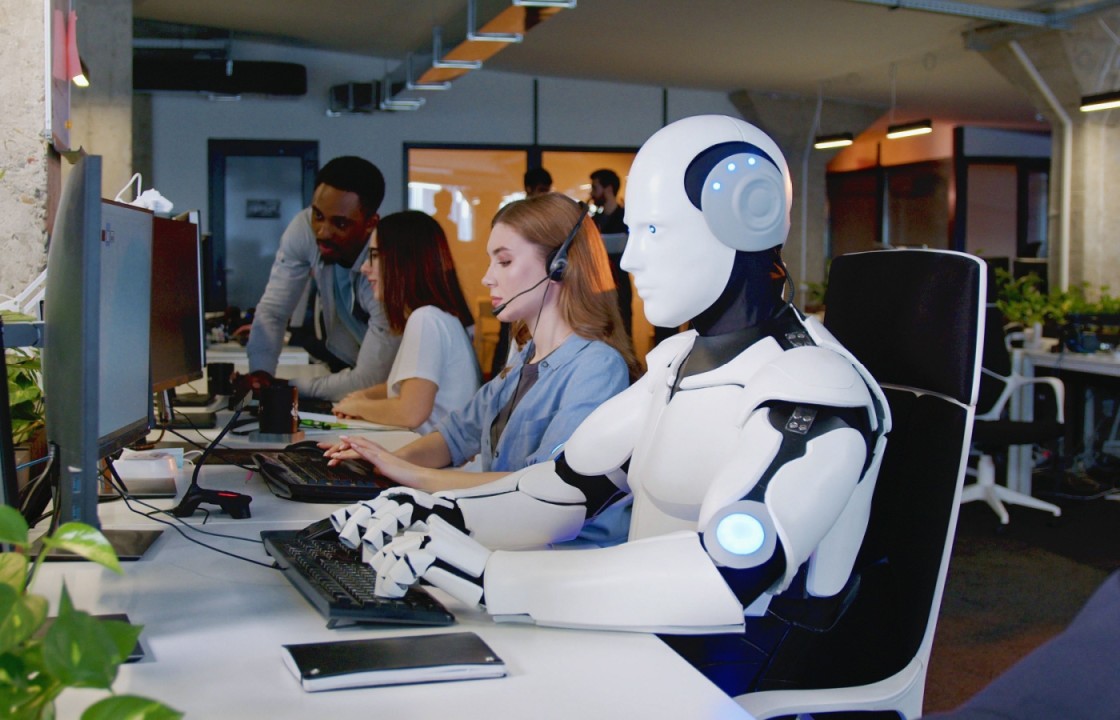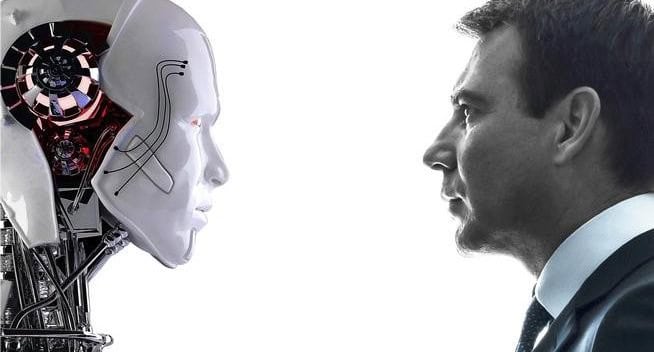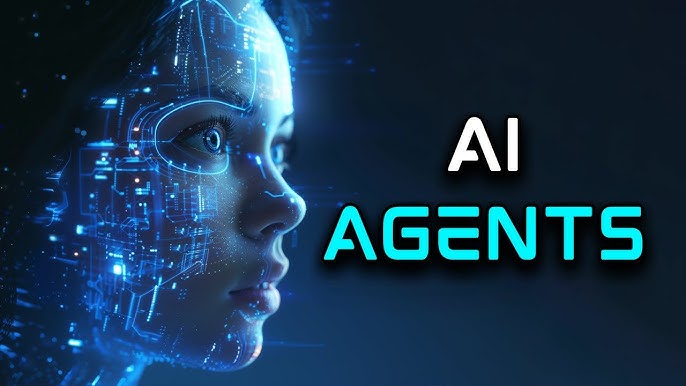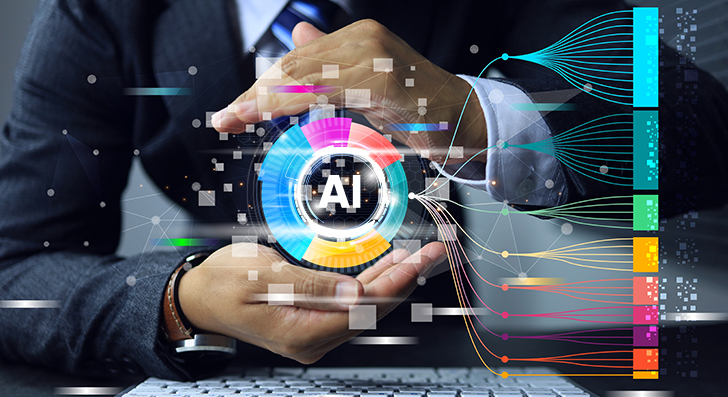Introduction
The retail industry has undergone significant transformations in recent years, with the rapid advancement of artificial intelligence (AI) technology playing a major role in reshaping the workforce. As AI continues to evolve and become more integrated into various aspects of retail operations, it is crucial to explore the potential impact on retail jobs and the future of the industry.
The landscape for retailers is currently tougher than ever and has been challenging for some time. Understanding and serving the needs of the modern customer is complex and accurately delivering on these needs is a tall order.
While diversifying your product portfolio and investing in your online presence are handy techniques for boosting revenue, supporting processes with valuable data and powerful technology can set a retailer apart from its competitors.
At the heart of any business is its people, and a happy workforce is perhaps a more pertinent method for achieving success than any other. Investing time into creating an agile and happy employee experience should be a priority for retailers.
As retailers are faced with economic uncertainty, consumers with less spending power and a myriad of other challenges, supporting all staff should be top of their agendas.
The Impact of AI on Retail Jobs
Automation of Tasks: AI-powered technologies are capable of automating repetitive and mundane tasks, such as inventory management, price optimization, and customer service. This automation can lead to increased efficiency and cost savings for retailers, but it also raises concerns about job displacement.
Enhanced Customer Experience: AI can be used to personalize the shopping experience for customers, providing tailored recommendations, chatbots for customer support, and even virtual try-on features. This can lead to increased customer satisfaction and loyalty, but it may also require new skills from retail employees.
Data-Driven Decision Making: AI can analyze vast amounts of data to help retailers make more informed decisions about product selection, pricing, and marketing strategies. This data-driven approach can lead to improved business performance, but it may also require retail employees to have strong data analysis and interpretation skills.
AI-supported labour scheduling and demand forecasting
AI-powered tools are revolutionizing labor scheduling and demand forecasting in the retail and manufacturing industries. Here are some key ways AI is transforming these processes:
Demand Forecasting
-
AI-driven forecasting engines use historic sales data, recent trends, and event effects to accurately predict labor demand down to the hour.
-
Predictive analytics leverages machine learning to identify patterns and anticipate future demand fluctuations, production bottlenecks, and supply chain disruptions.
-
Combining real-time data from sources like POS systems, AI can generate highly accurate forecasts that continuously improve over time.
Optimized Scheduling
-
AI ensures schedules are optimized to maximize sales while accounting for employee needs like availability and time off requests.
-
By analyzing data from the entire supply chain, AI can anticipate disruptions and suggest alternative scheduling strategies.
-
AI-driven schedule optimizers generate efficient schedules that deploy the right resources at the right times, reducing travel time and increasing productivity.
Reducing workforce turnover in retail with AI
AI-powered tools can help reduce workforce turnover in retail by:
Predictive Analytics: AI can analyze historical data to predict when and where turnover is likely to occur, enabling retailers to take proactive measures to retain employees before they leave.
Automated Scheduling: AI-driven scheduling software optimizes shifts based on employee availability and preferences, reducing stress and enhancing work-life balance.
Skill-Based Matching: AI matches employees' skills and qualifications to specific roles, ensuring each employee is in a position where they can excel and feel fulfilled.
Training and Development: AI identifies areas where employees may need additional training or support, helping to improve their job satisfaction and performance.
Employee Feedback: AI-powered surveys and sentiment analysis tools gather and analyze employee feedback to identify concerns and improve workplace conditions.
Personalized Career Paths: AI can provide personalized recommendations for career development and growth opportunities, keeping employees engaged and motivated.
Proactive Retention Strategies: By anticipating resignations, AI enables retailers to proactively enhance retention strategies and address preventable reasons for turnover
Industries at the Forefront of Change
Manufacturing: Robotic automation is revolutionizing production lines, leading to increased efficiency and reduced reliance on manual labor.
Retail: E-commerce platforms and AI-driven recommendation engines are reshaping the shopping experience, potentially impacting brick-and-mortar stores.
Transportation: Self-driving vehicles threaten to disrupt the transportation industry, impacting jobs such as truck drivers and delivery personnel.
Customer Service: Chatbots and virtual assistants are altering the dynamics of customer support roles.
Finance: AI is changing the landscape of financial services, affecting roles in trading, risk assessment, and fraud detection.
Adapting to the AI-Driven Workforce
Upskilling and Reskilling: To remain relevant in the job market, individuals need to acquire new skills that complement AI technologies. Continuous learning and adaptation are key.
Creativity and Problem-Solving: Human skills like creativity, critical thinking, and emotional intelligence are difficult to replicate by AI, making them highly valuable in the evolving job landscape.
Human-Machine Collaboration: Organizations are recognizing the potential for collaboration between humans and AI, where technology complements human capabilities rather than replaces them.
Ethical Considerations: Society must address the ethical implications of job displacement and ensure that workers are supported through transitions.
The Future of Artificial Intelligence in the Retail Industry
Artificial Intelligence (AI) is revolutionizing the retail industry, transforming every aspect of the customer experience and business operations. As AI continues to evolve, retailers can expect to see even more innovative applications that will shape the future of the industry.
Personalized Shopping Experiences
AI will enable retailers to deliver highly personalized shopping experiences by leveraging data from multiple sources to create dynamic customer profiles and segments. This will allow for tailored messages, promotions, and experiences based on each customer's behavior, preferences, and intent.
Enhanced Product Discovery and Visualization
AI will revolutionize product search and discovery using natural language processing and computer vision to better understand customer queries and match them with relevant products. Immersive product visualization options, such as AR and VR, will give customers an in-depth understanding of products before making a purchase.
Optimized Inventory Management and Fulfillment
AI will enhance inventory management and fulfillment processes by leveraging predictive analytics to accurately forecast demand and optimize stock levels. Automation through technologies like robotics and self-driving vehicles will streamline warehouse operations, making them more efficient and cost-effective.
Empowered Customer Service and Loyalty
AI-driven chatbots, voice assistants, and social media channels will provide fast, friendly, and personalized support, enhancing response times and problem resolution. AI will also help retailers create and manage loyalty schemes, rewards, coupons, and more to incentivize customer loyalty and advocacy.
Transformative Impact on Retail Workforce
As AI continues to automate tasks and optimize operations, it will lead to the creation of new job roles in areas such as data analysis, AI development, and digital marketing5. Retailers will need to invest in upskilling and reskilling initiatives to ensure their workforce remains competitive and can effectively collaborate with AI technologies
Conclusion
The future of retail jobs is undoubtedly shaped by the rapid advancement of AI technology. While there are concerns about job displacement, the integration of AI also presents opportunities for increased efficiency, improved customer experience, and data-driven decision making. To thrive in this evolving landscape, retail employees must be prepared to adapt, upskill, and collaborate with AI technologies. By embracing these changes and investing in the development of their workforce, retailers can position themselves for success in the years to come.
Read more :
AI POWERED FRAUD DETECTION AND LOSS PREVENTION
Demand Forecasting with AI: Avoiding Stockouts and Overstocking
Predictive Maintenance for Retail Equipment: Using AI to Prevent Downtime
Optimizing Delivery Routes and Logistics with AI
Augmented Reality (AR) and Virtual Reality (VR) Shopping Experiences powered by AI
AI-driven Visual Search and Recognition for In-Store Shopping
Biometric Authentication and Frictionless Checkout with AI
For more information contact : support@mindnotix.com
Mindnotix Software Development Company


 AI-Taxi App
AI-Taxi App AI-Food App
AI-Food App AI-Property Mgmt App
AI-Property Mgmt App AI-CRM
AI-CRM AI-Fantasy App
AI-Fantasy App
 Web Development
Web Development App Development
App Development Business & Startup
Business & Startup Hire Developer
Hire Developer
 Digital Marketing
Digital Marketing Lead-generation
Lead-generation Creative Agency
Creative Agency Branding Agency
Branding Agency Augmented Reality
Augmented Reality Virtual Reality
Virtual Reality Internet of Things
Internet of Things Artificial Intelligence
Artificial Intelligence Blockchain
Blockchain Chatbot
Chatbot



